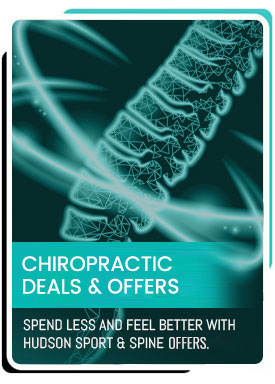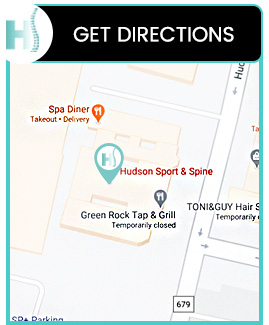Bulging Disc Symptoms & Treatment Specialist in Hoboken, NJ
Hudson Sport & Spine provides expert care for bulging disc symptoms with customized treatment plans to relieve pain and restore mobility. Dr. Todd Givens, DC, and his team specialize in advanced therapies for bulging disc management, focusing on improving spinal health and overall well-being. Whether you’re experiencing back pain, tingling, or reduced movement, our comprehensive care can help you find relief. Contact us today or schedule an online appointment for personalized care. We are conveniently located at 70 Hudson Street, Suite 2B, Hoboken, New Jersey 07030.
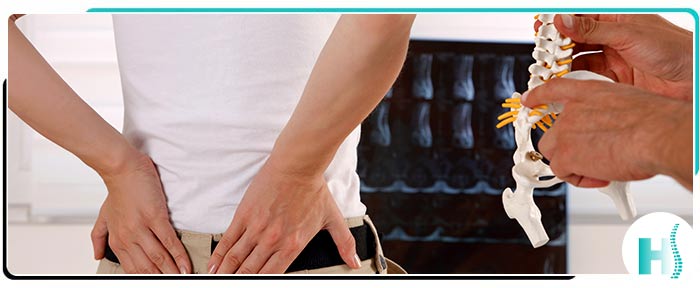
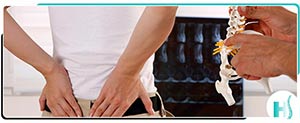
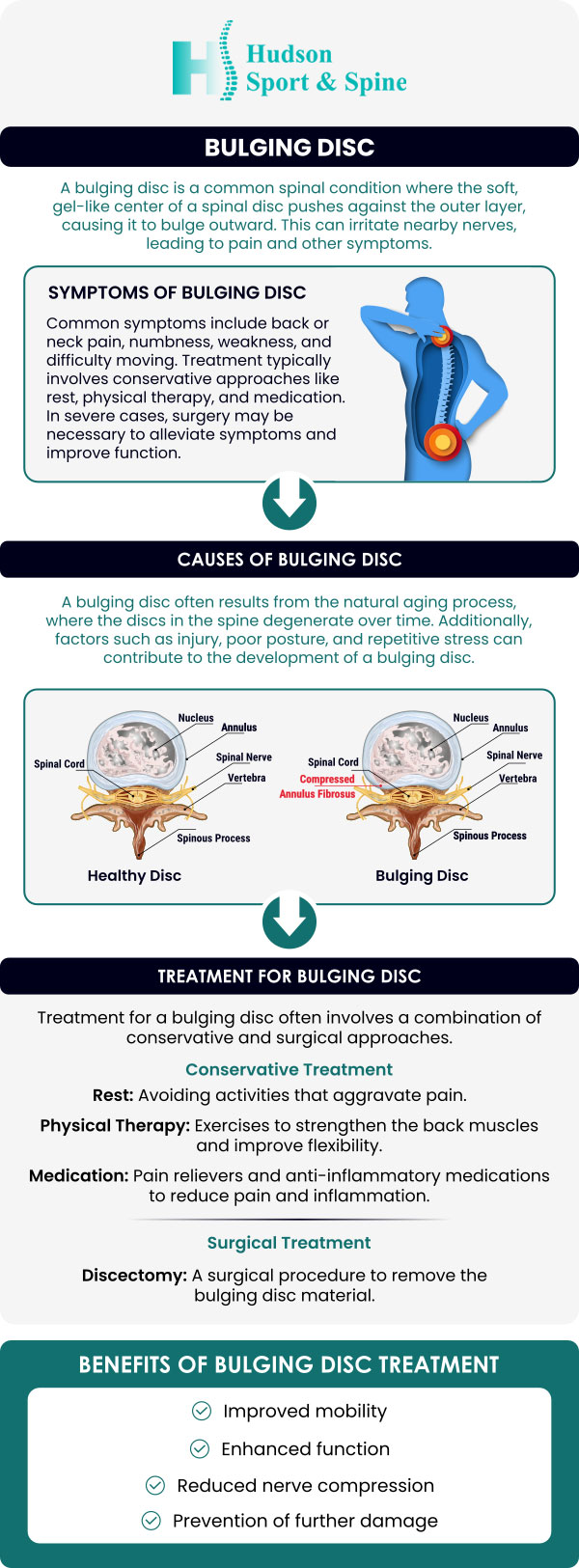
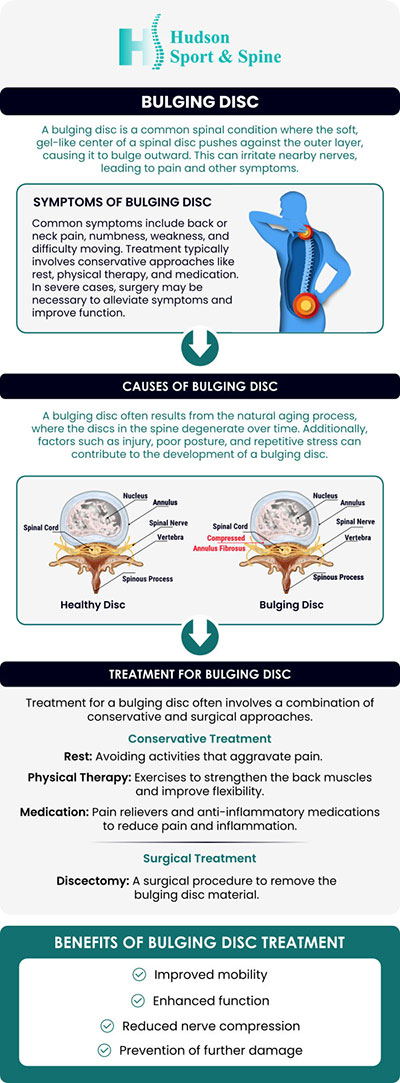
Table of Contents:
What are the warning signs of a bulging disc?
What flares up a bulging disc?
Do bulging discs heal on their own?
How do you treat a bulging disc?
At Hudson Sport & Spine, we specialize in diagnosing and treating conditions like bulging discs. A bulging disc arises when the soft, jelly-like center of an intervertebral disc protrudes through its tough outer layer. This condition can result from age-related degeneration, sudden injury, or repetitive strain, and may lead to discomfort if it presses on nearby nerves.
Recognizing Symptoms:
● Localized Pain: Pain often develops in the lower back or neck, depending on the affected disc, and may radiate to areas such as the buttocks, thighs, calves, arms, or shoulders. Targeted treatments can help alleviate discomfort.
● Numbness or Tingling: Numbness or tingling, commonly felt in the arms, legs, or feet, often results from nerve compression. Accurate diagnostics can help identify the affected nerves for precise treatment.
● Muscle Weakness: Weakness in muscles served by the affected nerves can impact motor skills and balance. Personalized rehabilitation programs can assist in restoring strength and functionality.
● Loss of Reflexes: Decreased coordination and balance issues can increase the risk of falls. Comprehensive evaluations help tailor effective treatment plans for these concerns.
● Chronic Stiffness: Persistent stiffness in the back or neck can reduce the range of motion. Therapies focused on flexibility improvement can help reduce discomfort and restore movement.
● Abdominal Pain or Constipation: A bulging disc in the lower lumbar spine may irritate nerves, leading to abdominal issues. A multidisciplinary approach ensures comprehensive care for such symptoms.
A bulging disc, often referred to as a herniated disc, occurs when the soft, gelatinous center of an intervertebral disc protrudes through its tough outer layer. This condition can develop due to factors such as age-related wear and tear, injury, or heavy lifting. We emphasize the importance of identifying and managing the various triggers that can exacerbate symptoms.
Common triggers include:
● Physical Activity: Engaging in strenuous activities like excessive bending, twisting, or lifting can increase pressure on spinal discs, leading to pain and inflammation. Safe exercise routines can help protect spinal health while maintaining physical fitness.
● Posture Management: Poor posture during prolonged sitting or standing can strain the spine and contribute to disc issues. Ergonomic assessments and posture correction strategies can reduce unnecessary spinal stress.
● Weight Management: Excess body weight can place additional strain on the spine, potentially worsening disc-related issues. Healthy lifestyle changes focused on balanced nutrition and regular physical activity can help maintain an optimal weight for spinal health.
● Smoking Cessation: Smoking can affect blood flow to spinal discs, limiting their ability to heal and stay healthy. Quitting smoking with the help of supportive resources can enhance overall spinal health and recovery.
● Managing Medical Conditions: Chronic health conditions such as diabetes and osteoporosis can impact spinal health. A collaborative approach with healthcare providers can help manage these conditions while supporting spine care.
● Exercise Programs: Strengthening the back and core muscles can improve spinal stability and reduce the risk of injury. Tailored exercise regimens focusing on flexibility and core strength can help protect spinal discs.
● Aging and Degeneration: Age-related spinal wear and tear can affect disc health. Preventive strategies, including age-appropriate exercises and therapies, can help maintain mobility and reduce disc degeneration.
● Injury Prevention: Falls, accidents, and improper lifting techniques can worsen disc problems. Education on safe body mechanics and injury prevention strategies can help reduce the risk of disc injuries.
Bulging discs occur when the cushioning discs between your vertebrae extend beyond their normal boundaries. This can lead to pressure on nearby nerves, resulting in pain, particularly in the lower back, or radiating symptoms like sciatica.
While many bulging discs can heal naturally over time, the process can be influenced by several factors, including the severity and location of the bulge, nerve involvement, age, and overall health. We emphasize the importance of understanding your unique condition to tailor a treatment plan that supports your body’s healing process.
● Approaches to Treatment: A variety of non-surgical, conservative treatment options can help alleviate pain, improve mobility, and support recovery from disc-related issues:
● Physical Therapy: Physical therapy programs often focus on strengthening core muscles, improving flexibility, and enhancing posture to reduce spinal strain and promote healing.
● Pain Management: Pain relief strategies may involve the use of over-the-counter medications, heat or ice therapy, and targeted treatments such as corticosteroid injections to reduce inflammation.
● Lifestyle Modifications: Adjusting daily habits, improving ergonomic setups, and practicing proper body mechanics can help minimize strain on the spine and prevent symptom aggravation.
● Medical Interventions: In more severe cases, advanced options such as minimally invasive procedures or surgery may be considered when conservative treatments do not provide sufficient relief.
At Hudson Sport & Spine, we understand that bulging discs are a prevalent cause of back and neck discomfort. Our goal is to provide comprehensive care that alleviates pain, enhances function, and prevents further complications through a blend of conservative and, if necessary, surgical treatments.
Conservative Treatment:
● Rest and Activity Modification: Maintaining an active lifestyle within a comfortable range can help manage pain while avoiding prolonged inactivity. Adjusting activities can prevent pain flare-ups and support recovery.
● Medications: Over-the-counter medications like NSAIDs or acetaminophen may help manage pain and inflammation. In some cases, prescription medications may be recommended for more significant pain relief.
● Physical Therapy: Physical therapy often includes customized stretching and strengthening exercises to improve flexibility, posture, and muscle support, reducing pressure on the affected disc.
● Heat and Cold Therapy: Alternating heat and cold treatments can help control inflammation, reduce stiffness, and provide temporary pain relief.
● Spinal Injections: Epidural steroid injections or other targeted treatments can offer temporary relief by reducing nerve root inflammation and pain in the affected area.
● Lifestyle Modifications: Ergonomic adjustments, smoking cessation, and weight management strategies can help reduce strain on the spine and support long-term spinal health.
Surgical Treatment Options: When conservative treatments are not effective, or if severe symptoms persist, surgical options may be considered. At Hudson Sport & Spine, we recognize that each patient’s journey is unique. Our multidisciplinary team is committed to providing a personalized treatment plan that considers the severity and location of your bulging disc, as well as your overall health.
If you’re experiencing persistent back pain, numbness, or tingling that radiates into your arms or legs, a bulging disc could be the cause — and getting the right care is essential. At Hudson Sport & Spine in Hoboken, Dr. Todd Givens, DC, offers specialized, non-surgical treatment plans designed to relieve disc pressure and restore spinal function. Using a combination of chiropractic adjustments, spinal decompression, therapeutic exercises, and posture correction, Dr. Givens tailors treatment to your specific symptoms and lifestyle. His goal is not only to reduce pain but also to improve mobility and prevent future disc issues.
At Hudson Sport & Spine, patients receive one-on-one care in a supportive setting focused on long-term relief. Whether your disc issue stems from an injury or chronic stress, Dr. Todd Givens can help you feel better, move better, and return to daily activities with greater comfort and confidence. Come to Hudson Sport & Spine for comprehensive treatment. For more information, Contact us today or schedule an online appointment for personalized care. We are conveniently located at 70 Hudson Street, Suite 2B, Hoboken, New Jersey 07030. We serve patients from Hoboken NJ, Jersey City NJ, Weehawken NJ, West New York NJ, Guttenberg NJ, Secaucus NJ, Harrison NJ, Kearny NJ, Newark NJ, Belleville NJ, North Bergen NJ and Lyndhurst NJ.
Check Out Our 5 Star Reviews



